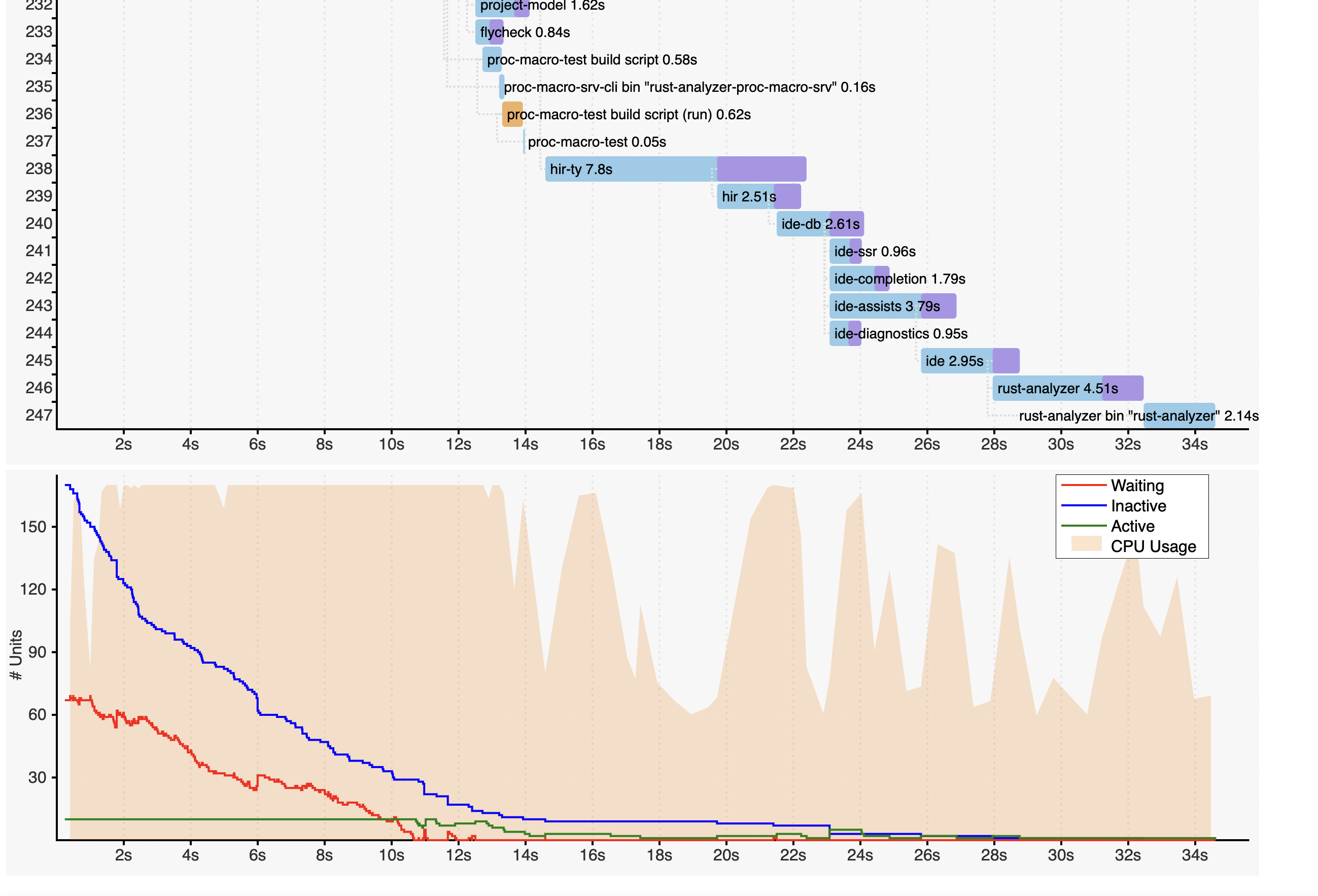# Rust Projects Build Time --- ## Understanding Rust projects build time * Cargo keeps track of changes you make and only rebuilds what is necessary * when building a crate `rustc` can do most of code generation in parallel, but many frontend steps still require synchronization * depending on the type of build, times spent in different build phases may be vastly different. * debug vs release * various flags for `rustc` and LLVM * a build from scratch vs an incremental build --- ## Producing a build timings report `rm -rf target/debug && cargo build --timings` ```text . └── target/ ├── cargo-timings/ │ ├── cargo-timings.html │ └── cargo-timings-<timestamp>.html ├── debug/ └── ... ``` --- ## Timings Report  --- ## Reading the report * Cargo can't start building a crate until all its dependencies have been built. * Cargo only waits for `rustc` to produce an LLVM IR, further compilation by LLVM can run in background (purple) * a crate can't start building until its `build.rs` is built and finishes running (yellow) * if multiple crates depend on a single crate they often can start building in parallel * if a package is both a binary and a library then the binary is built after a library * integration tests, examples, benchmarks, and documentation tests all produce binaries and thus take extra time to build. --- ## Actions you can take --- ## Keep your crates independent of each other * Bad dependency graph: ```text D -> C -> B -> A -> App ``` * Good dependency graph (A, B, and C can be built in parallel and with greater incrementality): ```text /-> A \ D -> B -> App \-> C / ``` Note: To clarify * more parallelism -> the compiler can do more work at the same time * more incrementality -> the compiler can avoid doing work it's done before --- ## Turn off unused features * Before: ```toml [dependencies] tokio = { version = "1", features = ["full"] } # build all of Tokio . ``` * After: ```toml [dependencies] tokio = { version = "1", features = ["net", "io-util", "rt-multi-thread"] } ``` --- ## Prefer pure-Rust dependencies * crate cannot be built before `build.rs` is compiled and executed * crates using C-dependencies have to rely on `build.rs` * `build.rs` might trigger C/C++ compilation which in turn is often slow * e.g.: `rustls` instead of `openssl` --- ## Use multi-module integration tests: * Before (3 binaries) ```text ├── src/ │ └── ... └── tests/ ├── account-management.rs ├── billing.rs └── reporting.rs ``` * After (a single binary) ```text ├── src/ │ └── ... └── tests/ └── my-app-tests/ ├── main.rs # includes the rest as modules . ├── account-management.rs ├── billing.rs └── reporting.rs ``` * Also benchmark and examples --- ## Other tips * split your large package into a few smaller ones to improve build parallelization * extract your binaries into separate packages * remove unused dependencies --- ## Tools * [`cargo-chef`](https://github.com/LukeMathWalker/cargo-chef) to speed up your docker builds * [`sccache`](https://github.com/mozilla/sccache) for caching intermediary build artifacts across multiple projects and developers